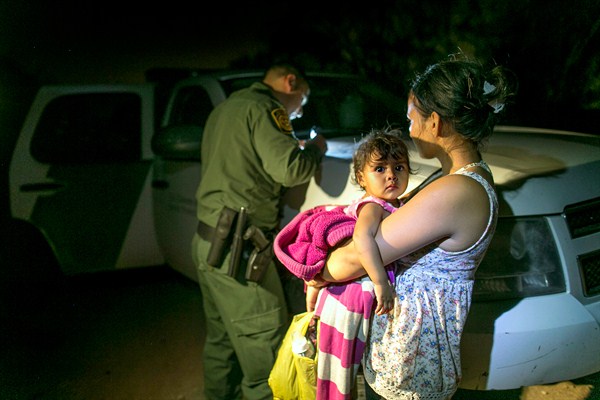The United States, Guatemala, Honduras and El Salvador are frantically trying to address the humanitarian crisis unfolding on both the U.S. border and in Central America’s Northern Triangle. Children and families have been fleeing from that region to the United States in record numbers since 2009, although the numbers have spiked dramatically in the past two years. Approximately 60,000 unaccompanied minors—children under 18 traveling without an adult—have been apprehended at the U.S. border since Oct. 1, overwhelming an immigration system designed to handle 6,000 to 7,000 in that time. Another 39,000 families, mostly women and children, have been taken into custody during the same period.
While there is no single cause to explain the sudden increase of young people from Central America heading to the United States, conditions in El Salvador, Guatemala and Honduras certainly encourage outmigration. The three countries have been among the region and the world’s most violent, at least when measured in terms of homicides per capita. The MS-13 and 18th Street gangs, drug cartels and organized crime are primarily responsible for the epidemic levels of homicides, although corrupt police forces contribute to the insecurity.
Meanwhile, the economies of the Northern Triangle do not produce enough quality jobs to satisfy the labor market. Poverty estimates range from 35-45 percent in El Salvador, to 50 percent in Guatemala and approximately 70 percent in Honduras. Many families survive off the remittances earned from family members in the United States. At best, weak, corrupt political systems have been unable to address the economic and security needs of their people. At worst, they have been part of the problem.

